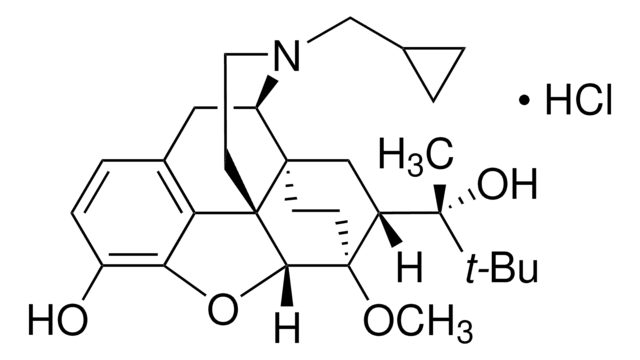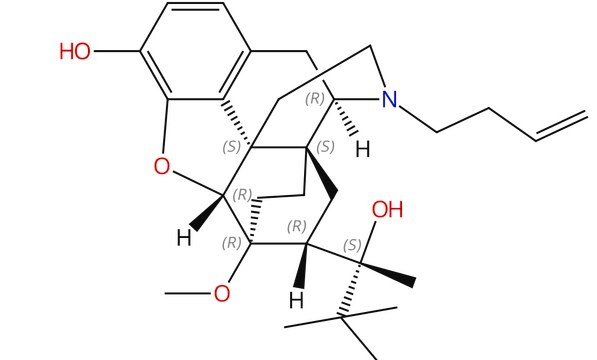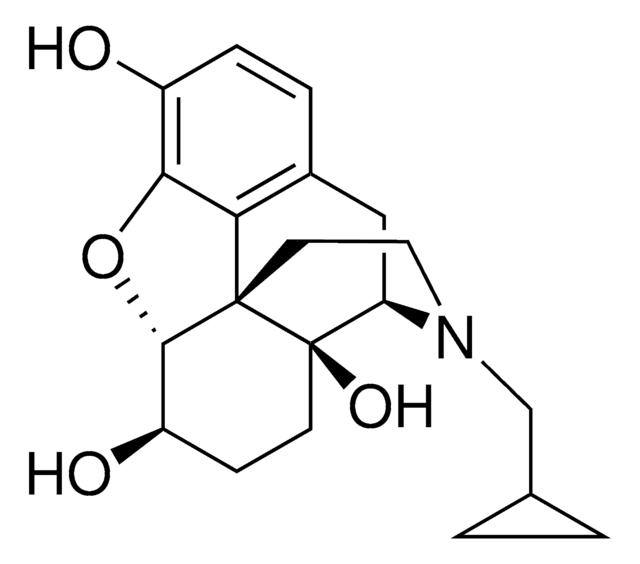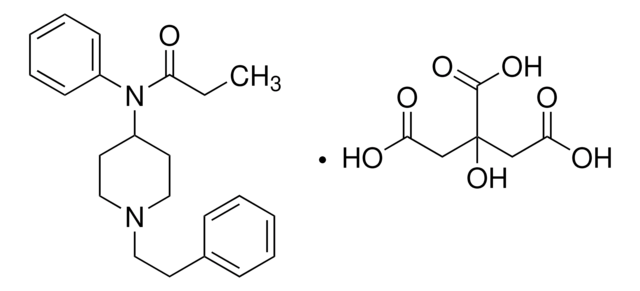Y0001108
Buprenorphine
European Pharmacopoeia (EP) Reference Standard
About This Item
Productos recomendados
grado
pharmaceutical primary standard
familia API
buprenorphine
fabricante / nombre comercial
EDQM
control farmacológico
regulated under CDSA - not available from Sigma-Aldrich Canada; psicótropo (Spain); Decreto Lei 15/93: Tabela IIC (Portugal)
aplicaciones
pharmaceutical (small molecule)
formato
neat
temp. de almacenamiento
2-8°C
InChI
1S/C29H41NO4.ClH/c1-25(2,3)26(4,32)20-15-27-10-11-29(20,33-5)24-28(27)12-13-30(16-17-6-7-17)21(27)14-18-8-9-19(31)23(34-24)22(18)28;/h8-9,17,20-21,24,31-32H,6-7,10-16H2,1-5H3;1H/t20-,21-,24-,26+,27-,28+,29?;/m1./s1
Clave InChI
UAIXRPCCYXNJMQ-CHLZSUIASA-N
¿Está buscando productos similares? Visita Guía de comparación de productos
Descripción general
Aplicación
Envase
Otras notas
Producto relacionado
Palabra de señalización
Danger
Frases de peligro
Consejos de prudencia
Clasificaciones de peligro
Acute Tox. 3 Oral - Aquatic Chronic 4 - STOT SE 3
Órganos de actuación
Central nervous system
Código de clase de almacenamiento
6.1C - Combustible acute toxic Cat.3 / toxic compounds or compounds which causing chronic effects
Clase de riesgo para el agua (WGK)
WGK 2
Punto de inflamabilidad (°F)
Not applicable
Punto de inflamabilidad (°C)
Not applicable
Elija entre una de las versiones más recientes:
Certificados de análisis (COA)
Lo sentimos, en este momento no disponemos de COAs para este producto en línea.
Si necesita más asistencia, póngase en contacto con Atención al cliente
¿Ya tiene este producto?
Encuentre la documentación para los productos que ha comprado recientemente en la Biblioteca de documentos.
Nuestro equipo de científicos tiene experiencia en todas las áreas de investigación: Ciencias de la vida, Ciencia de los materiales, Síntesis química, Cromatografía, Analítica y muchas otras.
Póngase en contacto con el Servicio técnico




